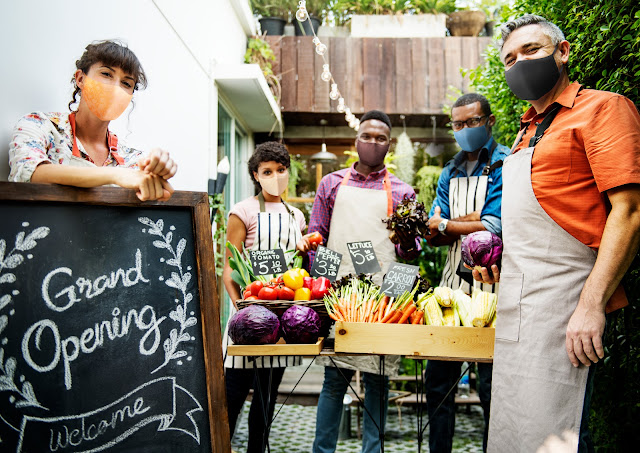Amplify Your Local Business
Forget casting a wide marketing net and hoping for a catch. The magic happens when your marketing is laser-focused. For local businesses, knowing your customers on a personal level isn't just a perk, it's your superpower. This is where hyperlocal social media marketing shines.
What is Hyperlocal Social Media Marketing?
It's not about reaching the masses; it's about connecting deeply with those who walk your neighborhood streets. It's tailoring content, promotions, and engagement to resonate with the unique interests, needs, and cultural nuances of your local community.
Why Hyperlocal Targeting Matters
In today's digital landscape, a staggering 57% of users turn to social media to find local businesses. Standing out in your own backyard is no longer optional, it's crucial.
5 Benefits of Hyperlocal Social Media Marketing
1. Targeted Reach: Speak directly to people interested in your services. Craft messages around local events, trends, or even dialects, making your content deeply relatable and boosting engagement.
2. Increased Local Buzz: When your content resonates, community interaction surges. Showcase local landmarks, participate in events, or highlight customer stories – foster a sense of belonging and build a loyal audience.
3. Cost-Effectiveness: Focus resources on a specific area, maximizing your marketing budget. No more wasting resources on uninterested demographics. Target users with a higher chance of responding to your offerings.
4. Community Connection: Become a valued part of the local landscape. Engage in community projects, support local causes, or collaborate with other businesses. This builds trust and loyalty, solidifying your brand in the community fabric.
5. Higher Conversion Rates: Tailor content and promotions to local needs and interests. Offer festival-specific deals or exclusive local discounts, creating compelling reasons for residents to engage with your brand.
Hyperlocal Social Media Strategies
1. Leverage Local Events and Trends: Share stories, images, and videos that reflect local culture and interests. Feature a "day in the life" of a local personality, showcase historical landmarks, or highlight events. Make your content resonate with the community's identity.
2. Go Geo-Targeted: Platforms like Facebook and Instagram allow targeting specific locations, from entire cities to specific zip codes. Ensure your content reaches the most relevant eyes.
3. Create Locally Relevant Content: Share stories, images, and videos that reflect the local lifestyle. Create a "#BestChicagoPizza" hashtag for your hometown pizzeria, or promote local shopping with "#ShopLocalOakville." Be an active participant in local conversations and engage with influencers.
4. Partner with Local Influencers: Collaborate with prominent figures, business leaders, or well-known social media personalities. Their endorsement can dramatically boost your visibility and credibility in the local area.
5. Optimize Your Profile: Clearly state your location or service area in your profile and bio. Highlight local details in your business name and address. This helps with local searches.
Overcoming Hyperlocal Marketing Challenges
1. Lack of Marketing Expertise: Leverage online resources, workshops, and community business groups to enhance your knowledge. Platforms like Coursera offer courses in social media and hyperlocal marketing.
2. Lack of Tools: Platforms like Search Business make creating and publishing location-specific content a breeze. Their analytics tools give you insights into local preferences and trends.
3. Narrowing Down Your Audience: Conduct market research to understand demographics, interests, and behaviors. Utilize Facebook Insights to learn about people engaging with your page. Get granular with your audience to craft content and partnerships that resonate locally.
Implementing a Hyperlocal Marketing Strategy
1. Identify Your Audience: Understand who you're targeting through market research and social media platform insights.
2. Choose the Right Platforms: Align your platform choices with your target audience. Consider demographics, interests, and online behavior.
3. Create a Content Calendar: Plan content around local events, holidays, and seasons. Offer special menu items during local festivals or partner with other businesses for cross-promotional content.
4. Actively Engage with Your Community: Respond to comments, participate in local social media groups, and collaborate with other businesses. Be an active and visible community member.
5. Measure and Adjust: Use analytics tools to track post performance, engagement patterns, and audience activity times. Refine your content strategy based on these insights.

Post a Comment